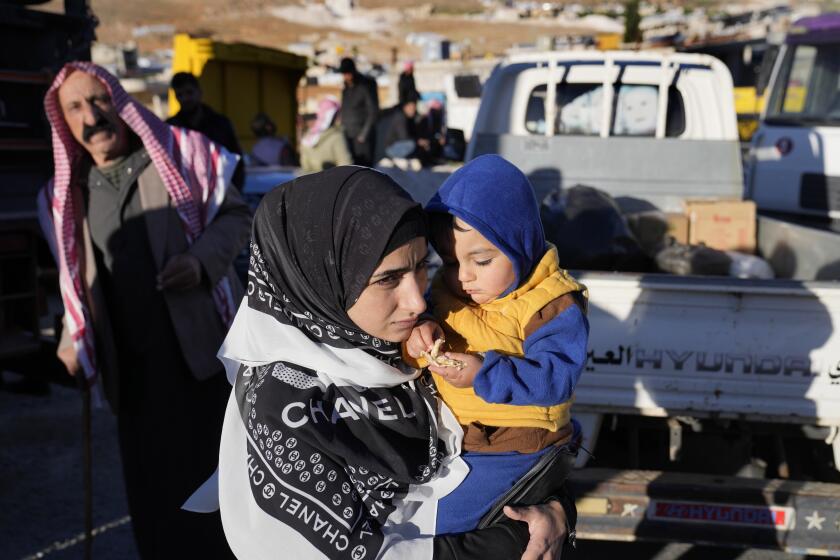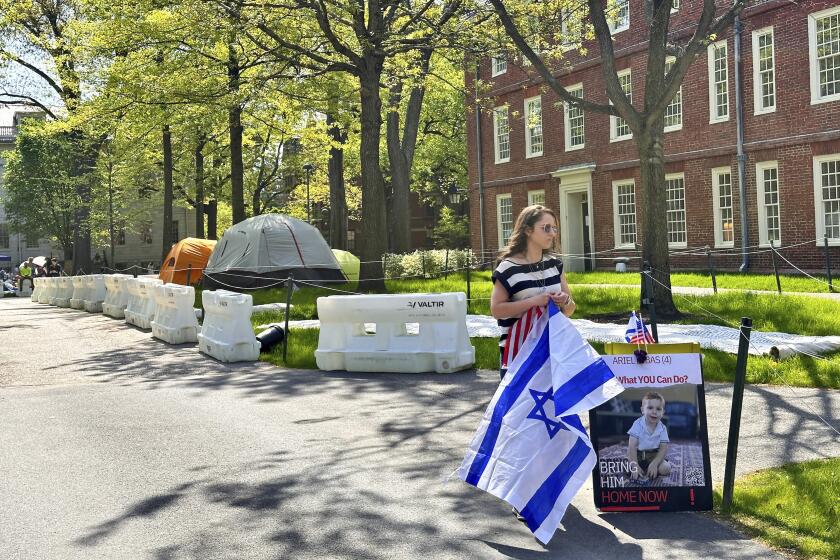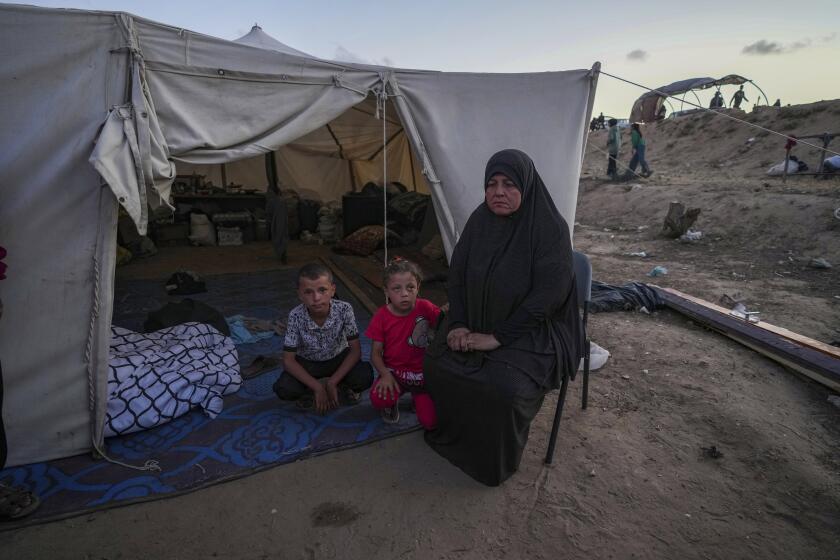From the rooftops of Tehran, cries of protest stir a student
Every night at 9, Golaleh goes to the top of her five-story apartment in northern Tehran, where she has a view of the whole city.
“It’s like a date,” she said of the nightly rendezvous, because like clockwork voices of opposition protesters start calling out from rooftops in all directions.
One man usually starts.
God is great, he will shout. Then hundreds respond.
Their cries remain faceless. People stay hidden in the dark so that police cannot track them. “But we can distinguish between them [the voices]: There are men, women and even children” who chant until 10 p.m., Golaleh said in a telephone interview Wednesday. Her last name has been withheld for her protection.
Protesting off the streets and under the cover of night is one way to avoid police violence while “letting out our energy together,” said Golaleh, a 31-year-old book translator studying English literature at Al Zahra University in Tehran.
Golaleh is helping write and gather signatures for a statement by students at Al Zahra in support of Zahra Rahnavard, the school’s former director and the wife of opposition leader and presidential candidate Mir-Hossein Mousavi.
When interviewed during a visit to Paris in May, Golaleh had said she preferred not to meddle with politics. She knew women who provoked the regime’s “morality” police by wearing outlandish makeup, painting their nails bright colors, or wearing head scarves far back enough to unveil a few too many rebellious curls -- all of which could potentially land a woman in jail.
But not Golaleh. She kept her tomboy short hair and bangs well covered, her big eyes free of heavy makeup.
Despite suffering under the regime’s strict behavioral codes and watching books she had spent months translating into Persian barred from publication because a line didn’t meet with state approval, she said she preferred not to get involved with risky activism.
“I leave those protests to the others,” she had explained in May.
Much of that has changed since last week’s election, which saw President Mahmoud Ahmadinejad declared the victor over Mousavi despite charges of vote fraud.
“Now I’m not afraid anymore,” said Golaleh, who spoke in English and admitted that only a few weeks ago she would never have held such a conversation over the telephone, for fear of being overheard by authorities.
“When I was in Azadi [Freedom] Square, I got assured that I’m not alone. I saw millions and millions of people with myself,” she said. “Before that I thought that, OK, we’re not more than 100,000. We’re a minority of people. But now, when I hear that in Ahvaz, in Tabriz, in Shiraz, in the very big cities of Iran they are protesting, and when you see that -- they call it a cyber revolution -- when I see my friends that are thinking in the same way, I think: OK, I won’t let them be alone also. Now we are sure that we are not a minority. They are.
“I think these are the last days of the regime,” she added, “because most of the religious people, most of the fans of the regime, now they are their enemies. They have changed.”
For now, she said, “we are watching Mousavi for the next step.”
--
Lauter is a special correspondent.
More to Read
Start your day right
Sign up for Essential California for news, features and recommendations from the L.A. Times and beyond in your inbox six days a week.
You may occasionally receive promotional content from the Los Angeles Times.





